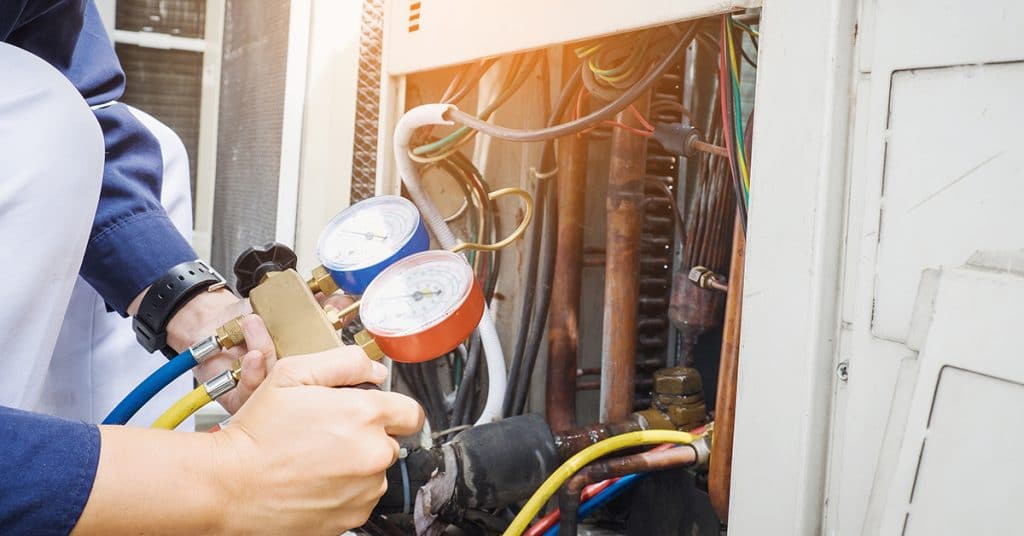Give Your Home a DIY Energy Audit - NEC Coop
Feb 24, 2021 — Electric Rates, Electric Tips at Home, Energy Efficiency, News, Resources

So, you’ve swapped your traditional lightbulbs for LEDs, only wash clothes on cold, and turned down the thermostat. How come your energy bill is still high?
There are a lot of factors at play when it comes to the amount of your monthly utility bill. The simplest and best route is to have a professional home energy audit done. This will help identify where you can save and where your home is losing energy. A DIY energy audit may not be as thorough as an assessment done by a professional, but it can help you pinpoint the ways you can make your home more energy-efficient.
If you are ready to roll up your sleeves and save some money, use the checklist below to help guide your efforts.
Check the insulation in the attic
Poor insulation is one threat to the loss of your HVAC-treated air; air leaks represent another. Insulation is essential for sealing in the warmth during winter and blocking out hot air in the summer.
The insulation’s effectiveness is measured in R-value. Various materials have different values per inch. The R-value of insulation will largely depend on the area in which you live. You need more insulation if you live in an area with a generally colder climate. We recommend that you check the U.S. Department of Energy’s R-value map to identify the suggested R-value for your specific climate zone.
Check for air leaks
A home that is well-sealed is an energy-efficient one. We recommend the following:
- Search for air leaks through gaps around tiny crevices – around plumbing pipes, and through wall cracks.
- Check the weather stripping along all door seals and windows.
- Check your ductwork for air leaks or gaps. If such is the case, patch them with aluminum tape.
Check your light bulbs
With the correct window treatments and light bulbs, your home will be well-lit for a few dollars per year.
- Turn off the lights when a room is not in use.
- Upgrade to LED light bulbsthroughout your home.
- Get free, natural light whenever you can, but during summer, try not to open the shades at the expense of unnecessary heat.
Check your HVAC system
About half of the energy consumption in your home goes to cooling and heating. For energy efficiency’s sake, make sure that your HVAC system is operating in tip-top shape.
Air conditioners, furnaces, and heat pumps should be professionally tuned up and checked on a yearly basis.
There are still a few things you can do to ensure that your HVAC system is working well:
- Make sure that the condensers of your air conditioner are free of debris.
- Check for loose electrical connections.
- Smell for gas leaks or any unusual smell.
- Keep your filters clean.
- Check for unusual noises or squeaks. Your system should only make minimal noise.
- Reduce cooling and heating load by turning back the thermostat. If possible, you can use other means to keep comfortable, such as wearing weather-appropriate clothing or using ceiling fans.
It is also good to check major appliances, as they can make a huge dent in your home’s monthly energy use. The energy use of electronics such as game consoles, TVs, and computers can really add up, too.
For a more thorough assessment, do not hesitate to call a pro. This DIY energy audit checklist can help the professional better evaluate your home and further identify potential areas where you can save.
Voted #1 Electric Provider
We were recently voted the #1 Electricity Provider by the Corpus Christi Caller-Times’ Best of the Best Awards for the 7th year running!
Benefits of Membership
As a member of our co-op, you’ll enjoy the following benefits:
- You’ll get a share of our profits.
- You won’t be locked into a long-term contract.
- You’ll get a simple, competitive rate with no surprise fees or markups.
- You can get a $50 bill credit for every new member you refer.

